Iraqi troops uncover tunnels, munitions at former Daesh camp in Mosul
Iraqi army soldiers have discovered a network of tunnels as well as ammunition at a former training ground of Daesh Takfiri militants on the eastern bank of the Tigris River as government forces and allies are preparing for a new stage of operations in the northern city of Mosul.
Iraqi army commander, Lieutenant Colonel Falah Hammad Hindi, said Daesh extremists “used this entire area as a training ground," adding, "The Ghabat area was cordoned off in order to train the members of the group on how to snipe at, use mortars, and for physical training.”
Hindi went on to say that some of Daesh members were fed only a few potatoes per week, while others were allowed to eat three dates per day to become battle-ready in the camp.
The senior Iraqi military figure further showed a room dug beneath the ground, which the terrorists apparently used to hide in the wake of aerial bombardments.
“Our role here now is to hold the ground following the recapture of the ground by the Iraqi army and the CTS (Counter-Terrorism Service), and the removal of Daesh militants,” Hindi pointed out.

Hindi added that Daesh snipers are highly accurate because they had formerly been soldiers in eastern European military forces.
He noted that Iraqi government forces rely on intelligence from residents of western Mosul as they gear up for a new phase of operations against Daesh militants.
“We are in touch with citizens on the western side... They contact us and inform us about Daesh positions, [and] sniper locations; they are very helpful. They tell us who the snipers are, if they are foreigners or locals,” Hindi said.
The Iraqi army commander stated that the next stage of battle against Daesh militants in Mosul “will be easier because of the steadfastness of Iraqi forces.”
UN: Western Mosul operations could displace 250,000 civilians
Meanwhile, the United Nations High Commissioner for Refugees (UNHCR) said efforts to squeeze Daesh out of west Mosul could force 250,000 civilians to flee if, that is, they get the opportunity to find a way out and save their lives.
“As many as 250,000 Iraqis could be displaced from their homes with the anticipated escalation of conflict in densely-populated western Mosul,” UNHCR spokesman, Matthew Saltmarsh, said.
The UN refugee agency said on Friday that the number would add to the roughly 162,000 people who have already been uprooted as a result of fighting between Iraqi government forces and Daesh terrorists since October 17 last year.

On February 2, Special Representative of the UN Secretary-General for Iraq Jan Kubis told the UN Security Council that recapture of the western part of Mosul would be a massive challenge, with complex urban operations.
"There is no question that civilians will be at extreme risk when the fighting starts in the western sections of Mosul," he said, adding, “Humanitarian partners are bracing for a variety of possible scenarios in the western sections, including a possible mass exodus, prolonged siege-like conditions, or a sequenced and managed evacuation by the Iraqi security forces.”
The official praised Iraqi army forces and pro-government fighters from Popular Mobilization Units – better known by the Arabic name, Hashd al-Sha’abi – for giving priority to the protection of civilians during their operations.
Daesh abducts 17 women in Kirkuk
Meanwhile, Daesh terrorists have kidnapped more than a dozen women in the northern oil-rich province of Kirkuk on charges of attempting to flee a militant-held area in the Zab district, located 95 kilometers (59 miles) west of the provincial capital, Kirkuk.
Hassan al-Soufi, a senior Hashd al-Sha’abi commander, said the terror group accused the women of abandoning territory under their control, and drawing up plans to smuggle civilians to government-controlled areas in the province and neighboring Salahuddin Province.
Explosion heard near Iran’s central city of Isfahan: Report
‘Iran retaliation against Israel ensured no aggression would go unanswered’
US vetoes Palestinian request for full UN membership
Iran sufficed to strike only part of Israel’s military positions: FM to UN chief
IRGC: Israel’s Dimnoa nuclear reactor not among Op. True Promise’s targets
VIDEO | West Asia awakens
'Stop any further Israeli adventurism,' Iran FM tells Security Council
Google fires 28 employees for protesting military deal with Israel


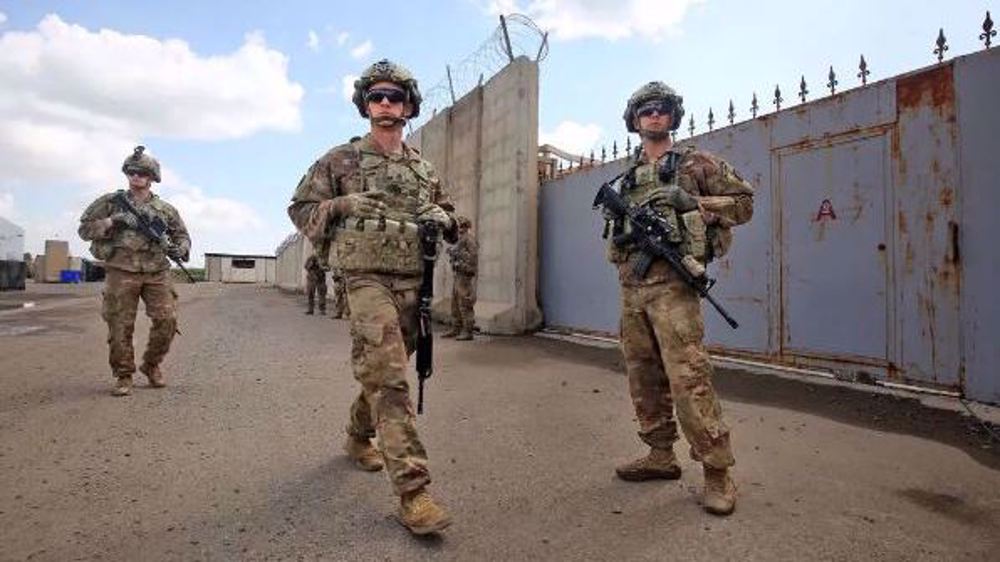
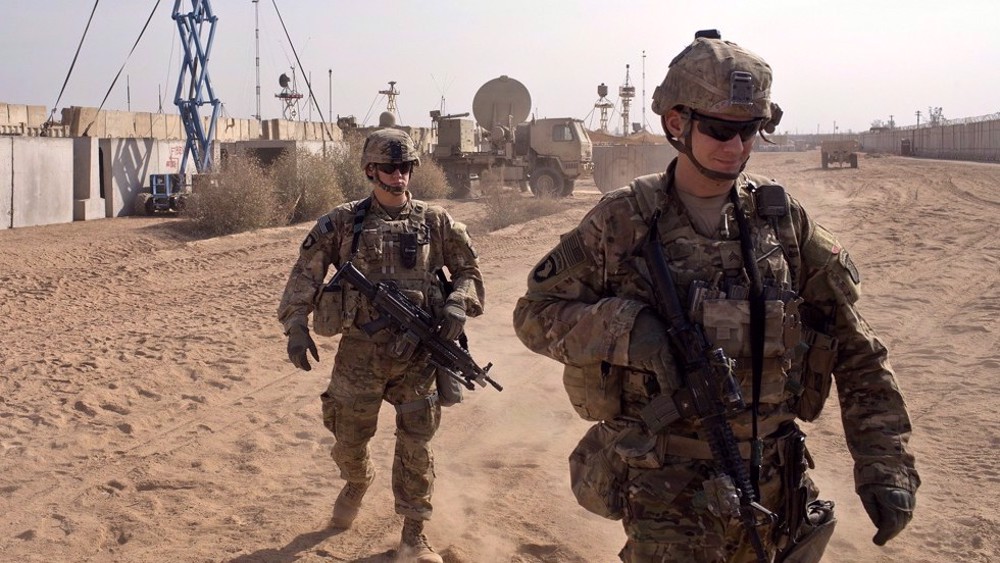
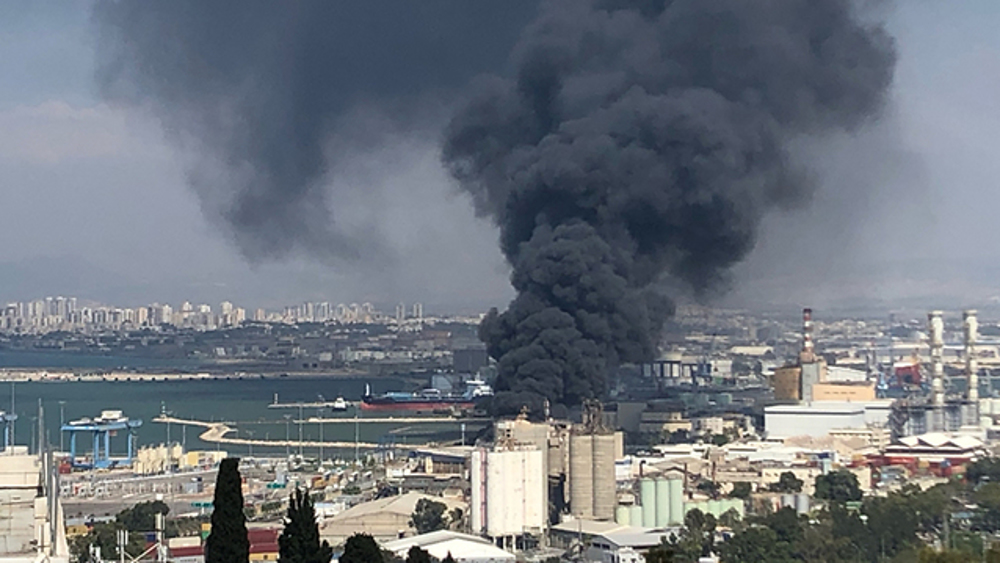





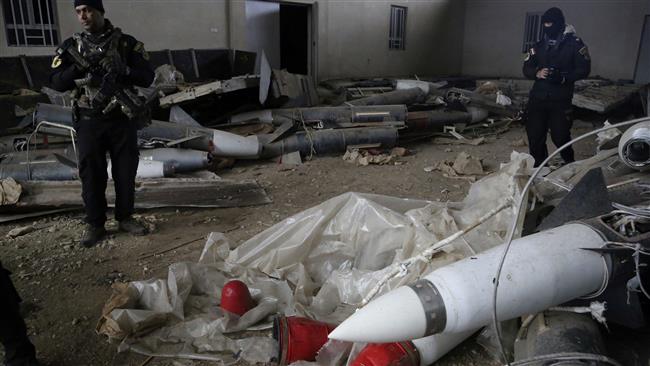




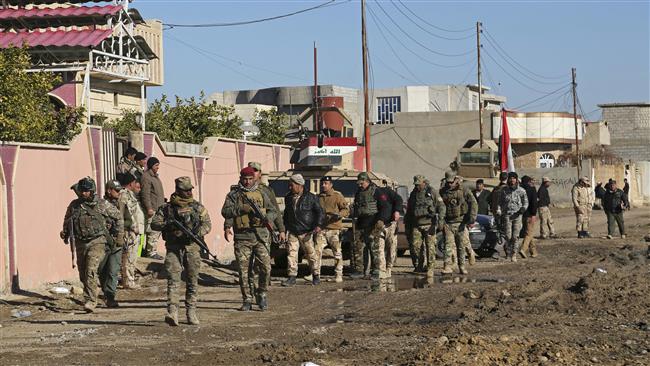

 This makes it easy to access the Press TV website
This makes it easy to access the Press TV website